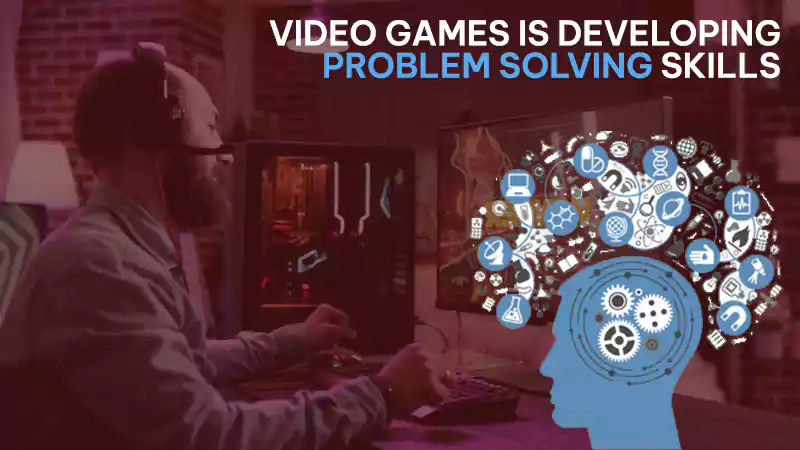
Video gaming was previously thought of as just a fun and addictive pastime, yet it undoubtedly has the potential to make the world better. Due to motivating learners to explore career paths in STEM fields and helping solve real-life issues, gaming is now seen from a completely fresh perspective.
People have recently realized that video games are highly efficient tools for developing problem-solving skills. In the majority of instances, what is believed to be “good” gaming does not have much in common with winning or losing – it is actually the process of solving problems, in and of itself, that provides gamers with fulfillment and joy. Taking that into consideration, video games may be precisely the exact thing we require in the era when society is trying to solve some of the greatest challenges it has ever faced.
There are several fundamental ways in which video games can enhance your capacity to deal with arising issues:
Efficiently Using Mistakes to Learn Faster
Everyone makes mistakes daily. However, the difference between real-world and video game mistakes is that with video games, you always get direct feedback and are instantly aware of your error.
Recognizing the things you’ve done incorrectly and adapting your strategy is essential to achieving success in video games. If you don’t learn practical lessons from your mistakes while engaging in a video game, you will not have fun and won’t achieve anything valuable. Modifying strategies on the spot is a critical aspect of solving problems.
You continuously adjust to the changing conditions and rules of the game. While playing, you discover that you need to alter your approach or strategy instead of prematurely losing hope and giving up – a life skill the importance of which cannot be overstated. In our current world, nothing can stop a person who is able to quickly and efficiently learn from the mistakes made.
Enabling the State of Deep Practice
Frequently playing video games exposes you to the experience of what scientists call the deep practice. It is when you’re repeatedly put through a series of the same or similar situations, with substantial outcomes in case of failure. For example, if your opponents shoot you at a particular point during the game, you’ll constantly experience the identical effect until you modify the strategy. Such repetitiveness may be frustrating, but it is incredibly beneficial, particularly when solving issues. This results in the player fully concentrating on the task at hand and, consequently, getting more knowledge than usually through deep practice. Such an approach has helped fighter pilots train in a computer-simulated environment (basically a video game) and become much better at their job in the real world.
Experimenting with New Things
Similar to how a pupil studying math doesn’t just tackle increasingly
challenging addition problems (they require diving into various areas of math knowledge, like algebra and geometry, as they advance), most video games demand the development of multiple skills during gameplay to ensure success. Video games can vastly develop problem-solving skills by letting you test diverse, unique ideas without investing many resources. You can aspire for the highest quality results, eventually moving from essential essay tips to writing step-by-step instructions.
The trial and error method can be profitable in gaming and real life since it raises your confidence. People usually believe they cannot solve issues because they lack determination and faith in themselves. However, video games show us that solutions may not always be easy to find, and there’s nothing wrong with exploring new ideas.
Boosting Creativity
Video games are connected to creativity because they enable your brain to recover energy and reset. When playing, the game absorbs your attention completely. Your real-life tasks require inventiveness.
Understanding When to Stop and Give Up
It may appear unexpected and somewhat counter-intuitive, but video games can teach you the science of giving up at the right moment and letting go. In real life, you may frequently hit the wall and drain yourself in obviously dysfunctional attempts to solve the problem without realizing that your approach simply does not work as intended. In video games, however, you will get direct and instant feedback. And because you will not use the same strategy over and over, you’ll realize that not all your ideas or solutions are equally sufficient. You’ll be able to determine when you’re losing time, making progress, and solving the issue. Video games can show you in a short time that the tactics you’ve been trying out are not giving you any profit and that you need to adapt, modify your way of thinking, and find another tactic.
There are people who outright dislike games or don’t have enough free time to play them, and that’s fine. Regardless, those who enjoy playing video games may try perceiving them not only as a source of fun but also as a means to improve your self-development skills, upgrade your status, and boost your career. Actually, there are a fair amount of motives to engage in video gaming that is not related to entertainment: it might help us solve the world’s most significant problems.